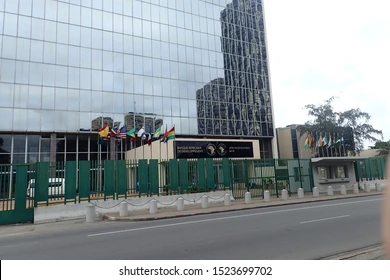The news was heart-rendering but it had to be told.
On Friday, the Transmission Company of Nigeria (TCN) revealed what many had feared; that Nigeria’s claims to being serious with its power sector reforms may have been a huge joke.
An inkling into this mindset was provided by the Managing Director, Usman Mohammed, who told newsmen via a statement that TCN had recovered more than 693 containers of power equipment lying waste at the ports for 15 years.
The company alleged tariff as excuse why the multi-billion Naira equipment were abandoned.
Even more embarrassing was Mohammed’s claims that some of the power equipment had been auctioned by the Nigeria Customs Service, promising that TCN would go after the auctioneers to recover the containers.
“TCN still has over 200 other containers auctioned by the Customs outside the ports,’’ he said.
He added, “We were able to recover 693 containers as of last week, out of a total of 800 containers that have been in the ports.
“Some of these containers have been there for 15 years.
“Others have been auctioned and we had to trace the auctioneers to get the containers.
“The government is supporting us. And with the same way they are supporting us, I know that as government has beamed its searchlight on the distribution companies, they are going to solve the problems with power distribution.”
Read Also: IMF warns South Africa’s economy still faces major risks
Friday’s revelation came on the heels of a recent face-off between Nigeria’s Minister of Power, Babatunde Fashola, and investors in the Distribution Companies (DisCos).
Trouble began to brew on July 18 when 11 Electricity Distribution Companies (DisCos) in Nigeria said the claims by the Minister of Power, Works and Housing, Babatunde Fashola, on the status of the nation’s power generation capacity were false.
Fashola had, while addressing newsmen at a briefing in Abuja, claimed that Nigeria’s power generation capacity was about 7,000 megawatts (MW), insisting that the problem facing the nation’s electricity sector had changed from unavailability of power for distribution to an excess capacity of about 2,000MW of power left unused.
But the DisCos, in a 28-page response said that the basis for the increase in power generation capacity from 4,000MW in 2015 to 7,000MW in 2018 as released by the minister was not clear.
“We do not understand the constant references to the increase of generation capacity to 7,000MW from 4,000MW for the period of 2015 to 2018 that has been used as the basis of defining the Discos as incapable of taking on more power – the stranded 2,000MW.
“A review of NERC’s ‘Daily Energy Watch’ for January 28, 2015 would indicate a generation availability of 6,421MW (divided into peak of 4,230MW and constrained energy of 2,191MW).
“In other words, it is misleading to state that available generation has grown from 4,000MW in 2015, as a measure of progress, given that a volume of generation slightly under 7,000MW already or previously existed, prior to the beginning of this administration,” they said.
The DisCos also faulted claims that the Transmission Company of Nigeria (TCN) currently had capacity to wheel over 5,000MW, stressing that in spite of the TCN’s tested wheeling capacity of 5,500MW, with the two historical generation peaks of 5,074MW recorded on February 2, 2016, and 5,222MW on December 18, 2017, only 4,577MW and 4,265MW were wheeled or transmitted, respectively.
“In simple terms, the TCN has not wheeled energy in excess of 4,265MW ever,” the firms added.
Read Also: Village Enterprise raises $3.5m to invest into entrepreneurs in Kenya & Uganda
Miffed, Fashola, on July 21, maintained that the power firms were sabotaging the nation’s economy by their actions.
“Claims that no directives from me will save the power sector from collapse, is consistent with the views of someone who has no skin in the game.
“As for the allegation that figures of power generation and distribution released by me are not true, the taste of the pudding lies with those who eat it. Electricity consumers know what their experience was in 2015, 2016, 2017 and today.
“Electricity consumers (which include Fashola), want better service; NBET wants its money; about N800 billion, so she can pay GenCos; If DisCos can prove that FGN owes more than what we admit, they should deduct (N72 billion) from N800 billion and pay the remaining N728 billion which they owe NBET,” he said.
Signals Nigeria could be heading for total darkness as Fashola and the DisCos talked tough came on August 1 when the latter threatened to divest and walk away from the contracts.
Addressing a press conference in Abuja, the investors in Jos Electricity Distribution Company Plc, led by Tukur Modibbo, said the DisCos were doing their best and would not hesitate to sell and leave the market if anyone was interested in buying.
“You asked me whether we are willing to quit the business. Now, please listen to me and put it down clearly that we bought our distribution company cash down for $82 million in 2013; we are willing to take $72 million in 24 hours and leave.
“If you have $72 million or Fashola can give us $72 million, we are giving him $10 million discount; if we get that sum, in 24 hours we are out of this business. Please, is there anybody with $72 million here? If there is none, please advertise it for me because I’ve given you the price,” he said.
The Chief Operating Officer, Ibadan Electricity Distribution Company, John Ayodele, on his part, stated that the power companies would quit immediately if they had an opportunity to do so.
He said, “On when we are going to quit the business, the fact is that if you ask all the investors, because I’ve sat with them, if you can refund them their money in five minutes, they will quit in 10 minutes. No investor wants to stay.”
With power games very evident in high places, the joke appears to be on Nigerians who, over the years, have pinned their hopes on a so called power sector reforms that had gulped billions of dollars with little to show in terms of its impact on industries and homes.




































